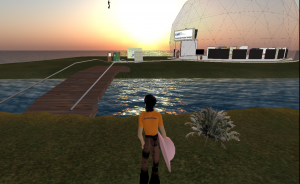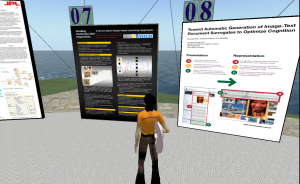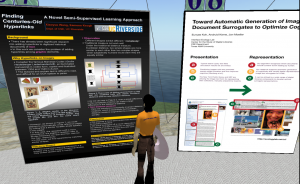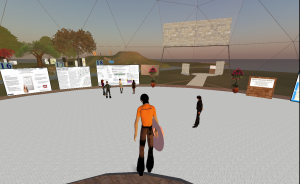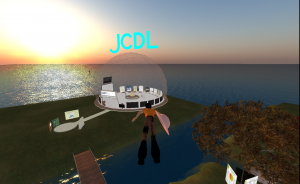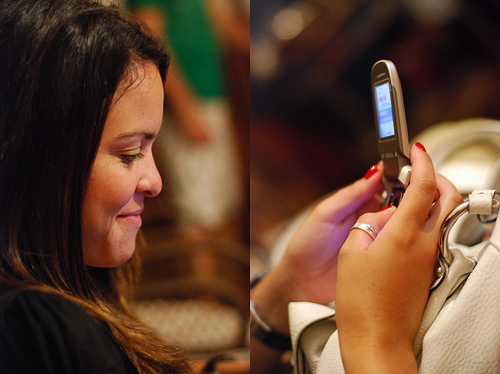Dr. Jodi Schneider’s Information Quality Lab invites applications for fully funded PhD students in Information Sciences at the School of Information Sciences (iSchool), University of Illinois at Urbana-Champaign.
Current areas of interest include:
- scientific information and how it is used by researchers and the public
- scholarly communication
- controversies within science
- potential sources of bias in scientific research
- confidence in applying science to public policy
Candidates should have a Bachelor’s or Master’s degree in any field (e.g., mathematics, sciences, information sciences, philosophy, liberal arts, etc.). The most essential skills are strong critical thinking and excellent written and spoken English. Interest or experience in research, academic writing, and interdisciplinary inquiry are strongly preferred.
Students in the Information Quality Lab develop both domain expertise and technical skills. Examples of relevant domains include public policy, public health, libraries, journalism, publishing, citizen science, information services, and life sciences research. Examples of technical skills include knowledge representation, text and data analytics, news analytics, argumentation analysis, document analysis, qualitative analysis, user-centered design, and mixed methods.
Examples of current Information Quality Lab projects:
REDUCING THE INADVERTENT SPREAD OF RETRACTED SCIENCE: SHAPING A RESEARCH AND IMPLEMENTATION AGENDA (Alfred P. Sloan Foundation) – stakeholder-engaged research to understand the continued citation of retracted research, currently focusing on standards development and raising awareness of what various stakeholders across scholarly communication can do.
STRENGTHENING PUBLIC LIBRARIES’ INFORMATION LITERACY SERVICES THROUGH AN UNDERSTANDING OF KNOWLEDGE BROKERS’ ASSESSMENT OF TECHNICAL AND SCIENTIFIC INFORMATION (Institute of Museum and Library Services Early Career Development) – Scientific misinformation and pseudoscience have a significant impact on public deliberation. This project will conduct case studies on COVID-19, climate change, and artificial intelligence to understand how journalists, Wikipedia editors, activists, and public librarians broker knowledge to the public. We will develop actionable strategies for reducing public misinformation about scientific and technical information.
USING NETWORK ANALYSIS TO SUPPORT AND ASSESS CONFIDENCE IN RESEARCH SYNTHESIS (National Science Foundation CAREER) – developing and testing a novel framework to evaluate sets of expert literature for potential sources of bias and to allow evidence-seekers to swiftly determine the level of consensus within a body of literature and identify the risk factors which could impact the reliability of the research.
Dr. Jodi Schneider studies the science of science through the lens of arguments, evidence, and persuasion. She seeks to advance our understanding of scientific communication in order to develop tools and strategies to manage information overload in science, using mixed methods including semantic web technology (metadata/ontologies/etc.), network analysis, text mining and user-centered design. Her long-term research agenda analyzes controversies applying science to public policy; how knowledge brokers influence citizens; and whether controversies are sustained by citizens’ disparate interpretations of scientific evidence and its quality. Prior to joining the iSchool, Schneider served as a postdoctoral scholar at the National Library of Medicine, the University of Pittsburgh Department of Biomedical Informatics, and INRIA, the national French Computer Science Research Institute. She is an NSF CAREER awardee and holds an Institute of Museum and Library Services Early Career Development grant. Her past projects have been funded by the Alfred P. Sloan Foundation, the National Institutes of Health, Science Foundation Ireland, and the European Commission.
iSchool PhD PROGRAM
iSchool PhD students have backgrounds in a broad range of fields, including the social sciences, sciences, arts, humanities, computing, and artificial intelligence. Accepted students are guaranteed five years of funding in the form of research and teaching assistantships, which include tuition waivers and a stipend. Additional funding is available for conference travel.
Our PhD program in Information Science is the oldest existing LIS doctoral program in the U.S. with 270 graduates. Recent graduates are now faculty members at institutions such as the University of Michigan, University of Washington, University of Maryland, Drexel, and UCLA, professionals at Baidu, Google, Twitter, Uber and AbbVie, and academic library professionals at the Library of Congress, Princeton University, and the University of Chicago.
APPLICATION PROCESS
For more information about the application process, please visit: https://ischool.illinois.edu/degrees-programs/phd-information-sciences/apply
Next application deadline: December 1, 2021
(This is an annual opportunity.)
QUESTIONS
For additional information about the iSchool PhD program, see https://ischool.illinois.edu/degrees-programs/phd-information-sciences
For questions about the program, please contact Prof. Michael Twidale, PhD Program Director, at ischool-phd@illinois.edu.
For questions, about the Information Quality Lab, please contact Dr. Jodi Schneider.
